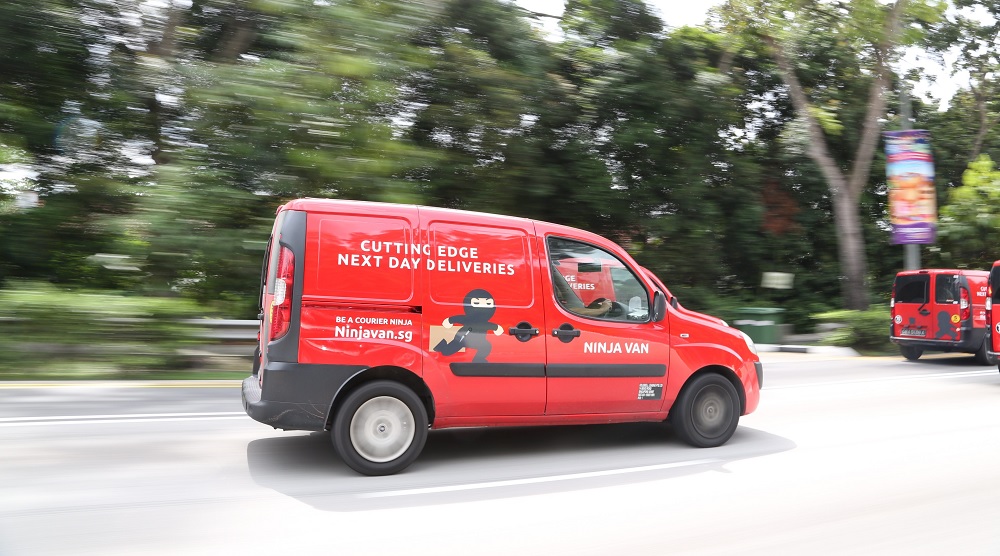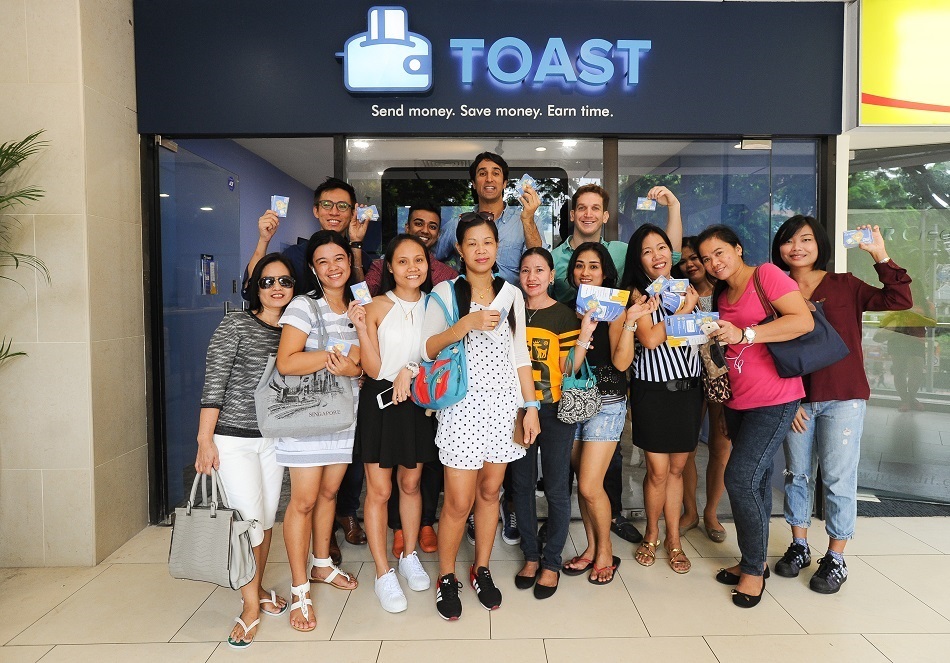
Photo credit: tykhyi / 123RF.
Despite a chill in the air, venture capital investment in Singaporean startups fared well in 2016. Mammoth rounds like Grab’s latest US$750 million fundraise from SoftBank and Didi and Garena’s US$170 million series D from Malaysia’s Khazanah Nasional Berhad dominated headlines, but they were far from alone.
The year saw seasoned companies clear the infamous “series A gap” with series B and even C rounds, and younger businesses take their first steps toward growth. Here are 10, in alphabetical order, that we think are doing promising work.
Active AI
Chatbots were one of the tech world’s favorite buzzwords in 2016. Whether they will revolutionize the way users interact with online services or prove to be a temporary obsession remains to be seen. Active AI is betting on the former – co-founder and CEO Ravi Shankar says that “conversation is the new UX.” The company’s mission is to enable banking through messaging apps like Facebook Messenger.
In November, Active AI raised US$3 million from IDG Ventures India and Kalaari Capital. Its AI-powered bot looks to help you do things like check recent transactions, transfer money to friends, or pay bills. The startup will work primarily through Messenger and Line, using participating banks’ APIs.
Astroscale
Astroscale is a Singaporean-Japanese startup with lofty goals – as lofty as low Earth orbit, in fact. The company builds microsatellites that detect and remove space debris – the human-produced litter that has resulted from all our space-related activities in the past decades. Debris orbits the Earth at speeds of 7.5km per second and poses a danger to spacecraft and astronauts as well as an environmental hazard.

Red dots represent debris. White dots are satellites. Photo credit: Astroscale.
Astroscale raised US$35 million in a series B round in March from investors including venture capital firm Jafco and the Innovation Network Corporation of Japan. The company recently unveiled its detection satellite, called Idea OSG 1, which it plans to launch in early 2017. The “sweeper” satellite, housed within a carrier called Adras 1, is slated for 2018.
It’s also working with Japanese sports-drink maker Pocari Sweat to send a “time capsule” to the Moon, containing messages from people in Asia and, apparently, Pocari Sweat powder in order to make the beverage out of water found on our celestial partner. I told you they had lofty goals.
Carousell
Carousell is a place where people can buy and sell stuff to each other online. It raised US$35 million for its series B round in August. The funding was dispensed by prominent VCs like Rakuten Ventures, Sequoia India, Golden Gate Ventures, and 500 Startups.
The startup said at the time it plans to use the funding for international expansion. In October, Carousell acquired Singaporean used-car marketplace Caarly, indicating possible paths to monetization. Newly appointed CFO Rakesh Malani is expected to help take the company down the money-making path.
Ninja Van
Last-mile logistics provider Ninja Van joined Carousell in the series B stage, having raised US$30 million in April from the Abraaj Group and investors like Monk’s Hill Ventures, B Capital, and Yahoo Japan Capital.
Ninja Van has quickly emerged as one of the most notable last-mile logistics services for ecommerce companies in Singapore. It now operates in five more markets in Southeast Asia: Malaysia, Indonesia, Thailand, Vietnam, and the Philippines. This pits it against several other startups trying to crack the logistics puzzle in the region.
Ninja Van’s edge against them: its ability to combine its own fleet of delivery people with third-party fleets, and partnering with physical businesses to create convenient drop-off points for consumers, according to CEO Chang Wen Lai.

Photo credit: Ninja Van.
Nugit
Nugit uses artificial intelligence to aggregate and analyze piles of marketing data and produce insights worded in normal human language. This can help marketers plan their campaigns better, removing a lot of the grunt work involved.
Nugit raised US$5.2 million in October, courtesy of Sequoia India. With the funds, it plans to grow its team of data scientists and engineers to better serve its client base, which includes Facebook, Johnson & Johnson, Malaysian telco Digi, and advertising firm Publicis.
Toast
Toast wants to solve the problem of international remittances for migrant workers. The startup’s digital wallet and mobile app allow Filipino workers based in Hong Kong (and soon Singapore) to digitize their money. Then they can send it back home at lower rates than traditional remittance services like Western Union.
The company raised a pre-series A round of US$1.5 million in November. For the coming year, it plans to use its data to enable more bank-like services, like lending money. Its services will be complemented by physical stores where users can try out the product.

CEO Aaron Siwoku (back, middle) with the Toast team and some of the startup’s customers. Photo credit: Toast.
Trax
Trax is a computer vision company. It uses image recognition and analytics technology in retail and the fast-moving consumer goods sector – packaged products ranging from soft drinks to processed foods – to track the movement and placement of products on retail shelves.
Trax’s tech can analyze images taken even by smartphone cameras. Its online engine provides insights to businesses in terms of how their products perform in stores according to how they are displayed to customers.
The company raised US$40 million for its series C round in June. The company is now making its push into the North American market. It serves clients like Coca-Cola, Heineken, Nestle, and Henkel in over 40 countries.
ViSenze
ViSenze uses computer vision and artificial intelligence that grants visual search and image recognition capabilities to ecommerce sites. The startup raised a series B round worth US$10.5 million in September from Rakuten Ventures, WI Harper Group, Enspire Capital, and other Singapore-based investors.

ViSenze enables visual search on ecommerce providers like Indian fashion marketplace Myntra. Photo credit: ViSenze.
The company’s revenue grew 300 percent year-on-year in 2016. ViSenze plans to devote more resources to research and development to explore image recognition in video – what CEO Oliver Tan calls “the undiscovered country” of ecommerce marketing. ViSenze has offices in Singapore and San Francisco and intends to open new ones in London, India, and China.
Wavecell
Wavecell shows there’s value to working behind the scenes. The communications API maker raised US$1.6 million for its series A round in February, but before that it spent five years bootstrapping and getting its products up to snuff. Then it managed to attract the attention of Singapore-based fund Qualgro. Existing investor Wavemaker Partners also stuck with its portfolio company.
Wavecell makes APIs that enable communication features in apps and websites. APIs include SMS, push notifications, and video call functions; app makers and operators can pick and choose between these services to communicate with their users. The startup is currently expanding from Singapore to the Philippines and Indonesia, and counts over 500 paying enterprise customers.
Xfers
Payments provider Xfers graduated from US startup builder Y Combinator in 2015. The founding team, both developers in Silicon Valley, moved back to Singapore intending to solve the problem of paying on peer-to-peer online marketplaces and ecommerce sites.
The team describes its offering as “bank transfer as a service” to distinguish it from other digital wallets and payments providers. Its APIs allow users to create “payment links” that can process bank transfers securely with minimal effort. Payments are held in a third-party account until the purchased items have been safely delivered. The startup targets individuals and small ecommerce businesses.
In January, it scored a seed round of US$2.5 million from investors including Facebook co-founder Eduardo Saverin, Golden Gate Ventures, and 500 Startups. Besides Singapore, Xfers operates in Indonesia and is exploring the Philippines and Hong Kong for further expansion in Southeast Asia.
This post 10 exciting startups from Singapore that raised funding in 2016 appeared first on Tech in Asia.
from Tech in Asia https://www.techinasia.com/10-singapore-startups-funded-2016
via IFTTT

No comments:
Post a Comment